Snake plants are popular indoor plants which you can easily grow. That means they require only a minimal care. Snake plant watering is a significant part of their proper growth.
How to tell when snake plant needs water
Watering snake plant appropriately is a curial part of their growth. There is a very easy way to tell when snake plant need water.
When you check the plant soil, If you see the soil is dry around the plant, it means it is time for you to water the plant.
Ideally when you touch it you need to feel whether the first inch of the soil is dry.
In addition to that, if you spot your snake plant’s leaves at the bottom have wrinkled and wilted and if they are dry to the touch, you need to start watering them immediately.
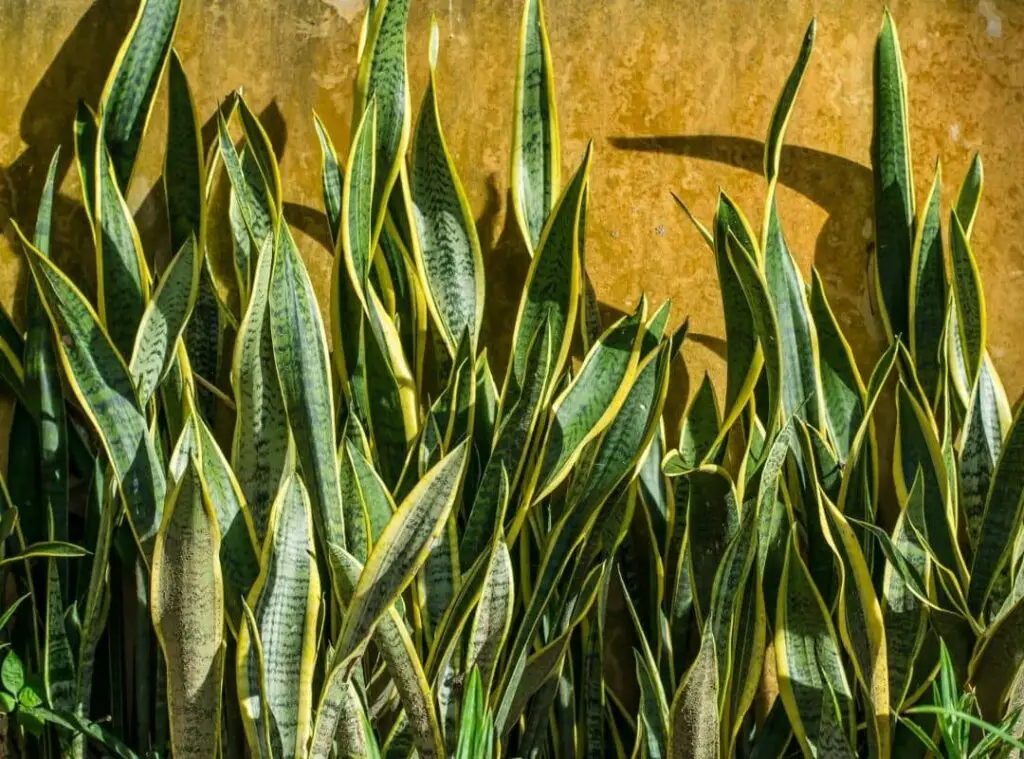
Snake plant watering frequency
As aforementioned, it is easy to take care of the snake plants and watering has a great importance in terms of providing proper care for them.
You need to keep in mind not to over water them otherwise it will start to rot.
Further you need to always observe whether the soil is dry enough prior to watering them thoroughly.
Ideally, you should water your snake plants once every two weeks.
Furthermore, the watering schedule could be different based on the home environment, soil type and even on the pot size.
When it comes to the winter season, you should cut down the watering. For larger plants, it is enough to water once every 8 weeks.
During winter, temperature will be cooler, and the sunlight will also dim. As such you will understand this period as their resting periods
How long it can go without water
It could survive waterless for about 6 weeks in general. Having said that, it could vary depending on the humidity, sunlight, indoor temperature etc.
Watering snake plant without drainage
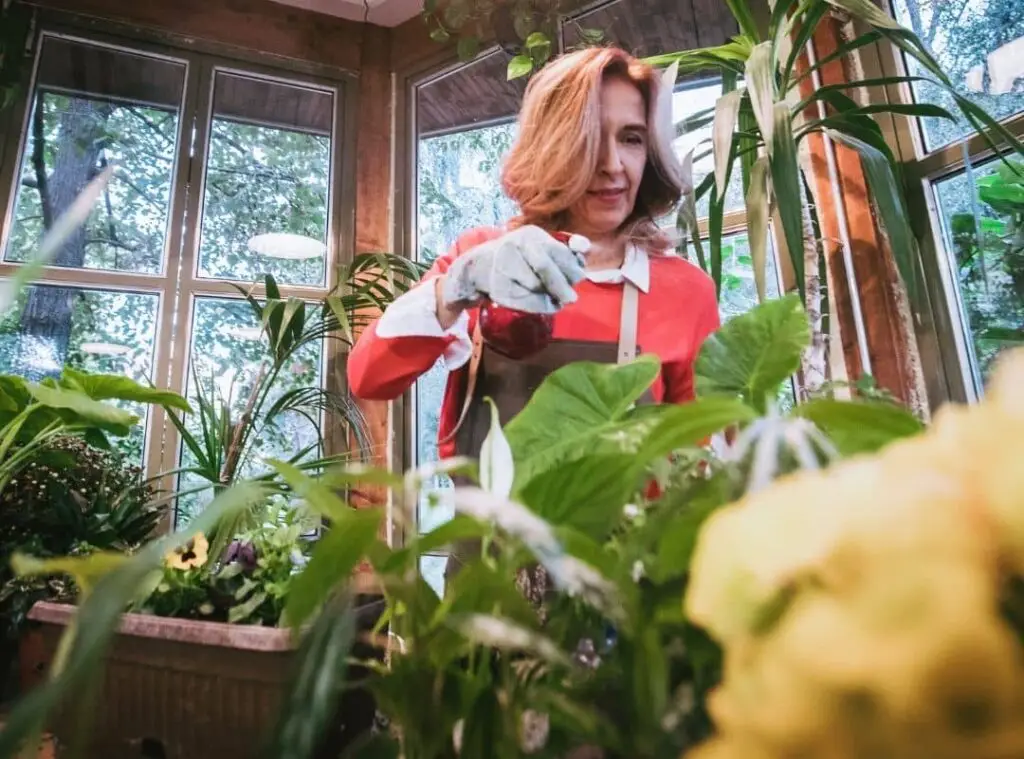
If you have grown your snake plants in pots which do not contain any drainage, that would be a problem. you could ideally use a pebbles layer which can act as a draining source in the pots.
By doing this, it allows the excess water to move into spaces and drain out.
I must say, there are controversies over this. There are some people who state that water could find it difficult to move through a couple of mediums in the pot. And consequently it will stay in the pot despite there being a pebbles layer.
In addition to that, if you have planted your snake plant in a porous pot with just one draining hole, that would also be good enough.
Terracotta pot is a fine example for this. After that you could locate the pot in a larger and decorative pot which does not have any draining hole.
Apart from that, you could locate the gravel or even pebbles at the base of the pot which does not have any draining holes and then locate the operational pot with draining holes above that.
In this circumstance, gravel could act as a layer which could avoid the plant’s roots to sit in water. Additionally, once you do this activity, it could create an ambient level of humidity which is also beneficial for the plant.
Keep in mind outdoors, do not use pots without drainage holes. Particularly when your plant gets rainfall.
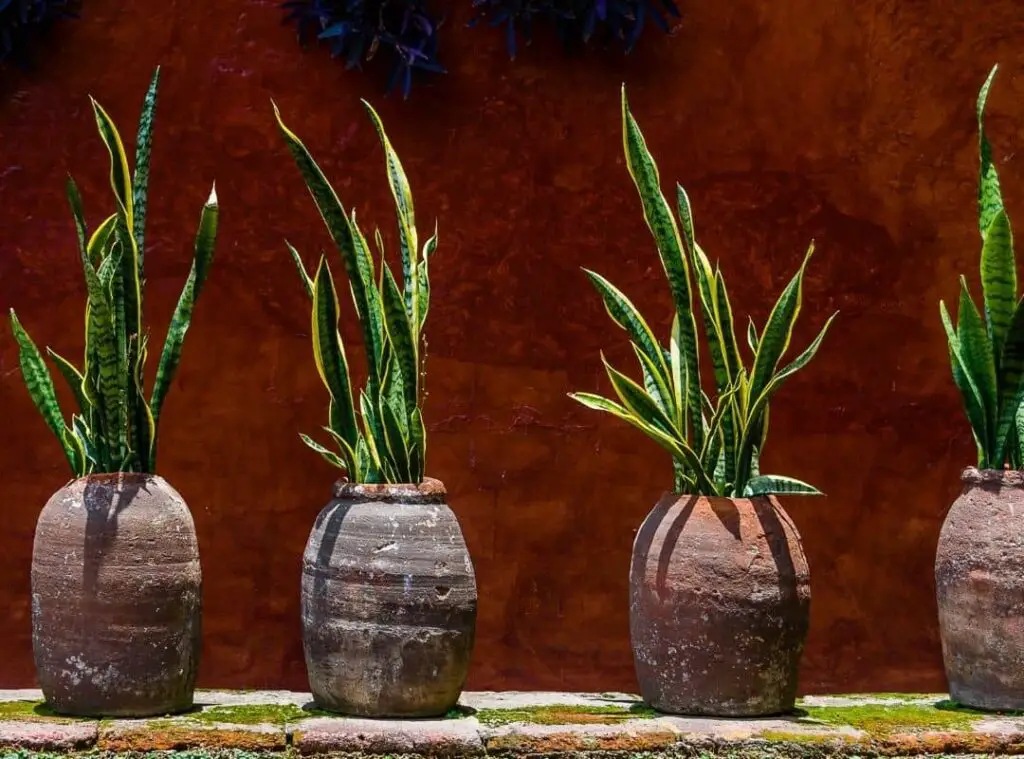
Snake plant watering amount
The main principle in terms of watering the snake plants is that you need to ensure that the soil is dry enough before you water them.
Snake plants can generally thrive well without water for about 6 weeks. If your snake plant is in shade and when there is a low level of temperature available, you need to water them less often.
Snake plant watering how often
During spring and in summer seasons, you can water once every two weeks. During winter it could be once every month. During winter, refrain from providing extra water as it could affect the leaves of the plant.
Snake plant water from top or bottom
Best practice is to water the snake plants from the bottom of the pot.
When you water them that way, it stimulates the roots to grow downward and deeper.
Consequently, it will help to establish the fleshy and tall leaves.
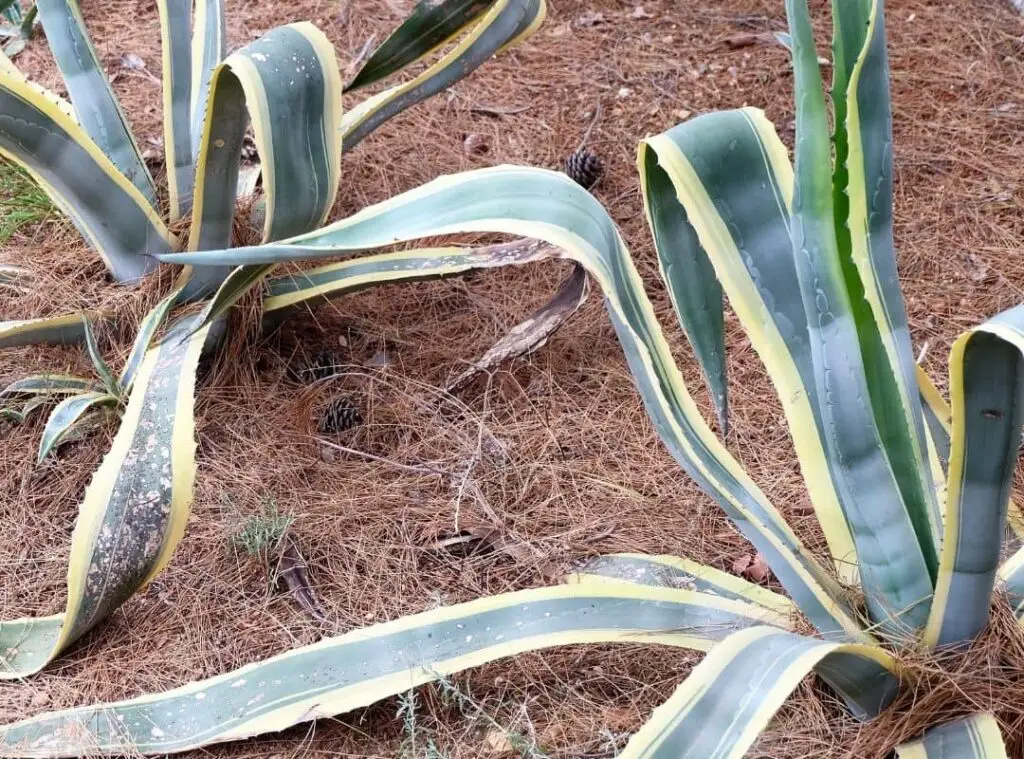
Snake plant watering in winter
During the winter season, Snake plants are literally in relaxing mode where they do not actively grow. As such you should water them less frequently in winter compared to when you do in spring and in summer.
It could be approximately once every 8 weeks’ time for the plants which are in larger pot.
During winter, temperature will be cooler, and the sunlight would also not be that intensive.
Snake plant watering in summer
During the summer season, it is essential to water them more frequently which would be beneficial for their growth.
As mentioned above you can check the soil and adjust the watering frequency according to that.
Indoor snake plant watering
When you water the indoor snake plants, make sure that you do it once every 2-6 weeks.
Having said that, watering frequency for indoor growing snake plants could also vary on your location where you live, soil mix type and even on the pot size.
Furthermore, during the winter season, ensure that you cut down on watering. You should ideally do it once every 6-8 weeks for the plants which are growing in larger pots usually.
During the winter season they will be in relaxing mode and their growth will be slower.
Outdoor snake plant watering
You cannot easily kill the snake plants unless you do not over water it. Their main concern is always determining the amount of water it requires.
Snake plants do not depend on a lot of water to thrive well. They only need a very minimal amount of water.
you need to water the outdoor snake plants also only when the soil is dry entirely.
It will base on the plant size and on the humidity levels available outside as well. Snake plants generally can thrive well for about six weeks.
One more fact to consider when you are growing snake plants is that you need to make sure that you plant them in a place where it is far from the plants which require regular watering.
Unless you could plant them in a pot itself and let them grow outdoors. Alternatively, you could plant them along with some other tropical plants too.
You could observe the snake plants leaves and decide whether you need to water them. If you spot any crispy and dry looking leaves you need to water them immediately.
Moreover, if the plant leaves have turned yellow or if they have wilted you need to give it a good drink of water.
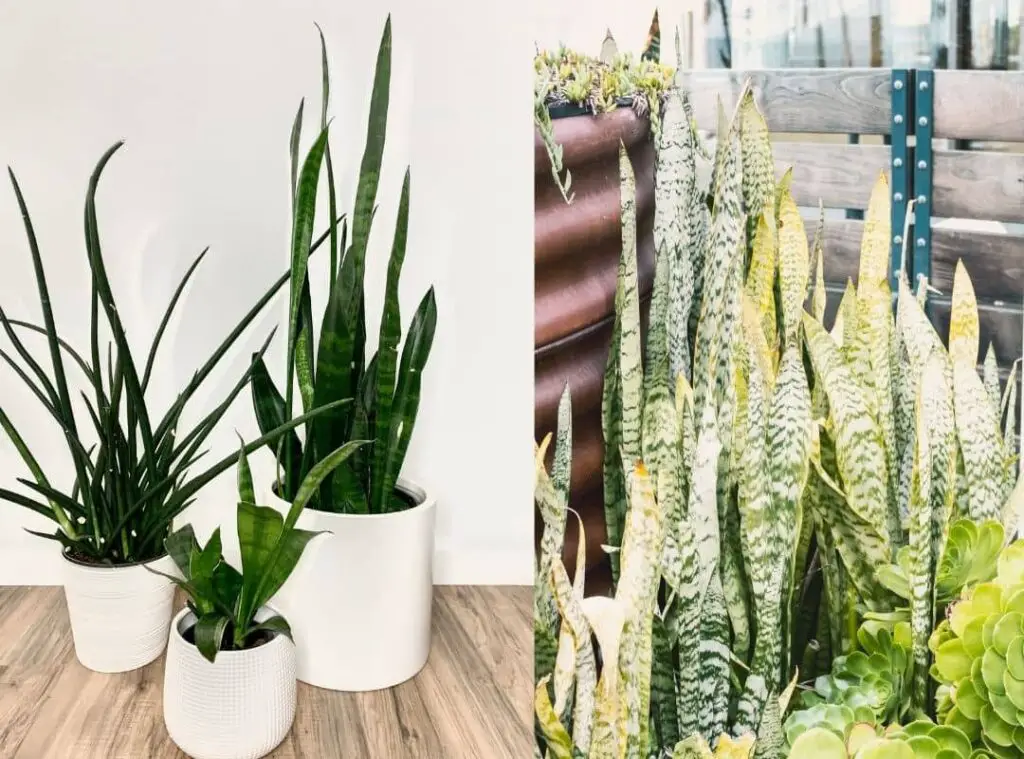
Small snake plant watering
You must be careful when watering baby snake plants. They are very fragile and a lot of water will dissolve them.
On the other had less water will dry them out. So until they become -10 inch tall, keep close watch when watering baby snake plants.
You need to check whether the top surface of the soil mix is entirely dry to water it just like with regular snake plants. To do that, you could stick your finger into soil and inspect its moisture.
When you water them ensure that no excess water is retained in the pot and excess water is moving from the draining holes.
FAQ
Should you water newly brought snake plant?
You should water the snake plants which you bought freshly if their topsoil surface is dry. So that it would look refreshing and will thrive well.
Should you water newly repotted snake plant?
You should give them a thorough watering when you report the snake plants.
Once you do this, it makes the soil around the plant firm and makes sure that the soil mix is moist like it used to be in the older pot.
Later, you could water the plant like you do regularly when the top layer of the soil is dry.
If you spot any water collected on the tray under the pot, you should remove them unless soil could become waterlogged. It could badly affect the newly cut roots.
What you need to water a snake plant?
You would require a proper watering tool to water snake plants. You can use a spray bottle for that purpose.
A spray bottle will regulate the amount of water you use. Try to avoid water hose when watering small snake plants. But if you have a large snake plant it is better to use a water hose or a water bucket.
Snake plant self-watering pot
When you use the self-water container for snake plants, it will make the top surface of the soil dry and hard. It could even pull away from the pot edges as well. It could help the plant to absorb water straight from its roots.
Read More : 56 Super Cute Fuzzy succulent | For your Home Garden|
